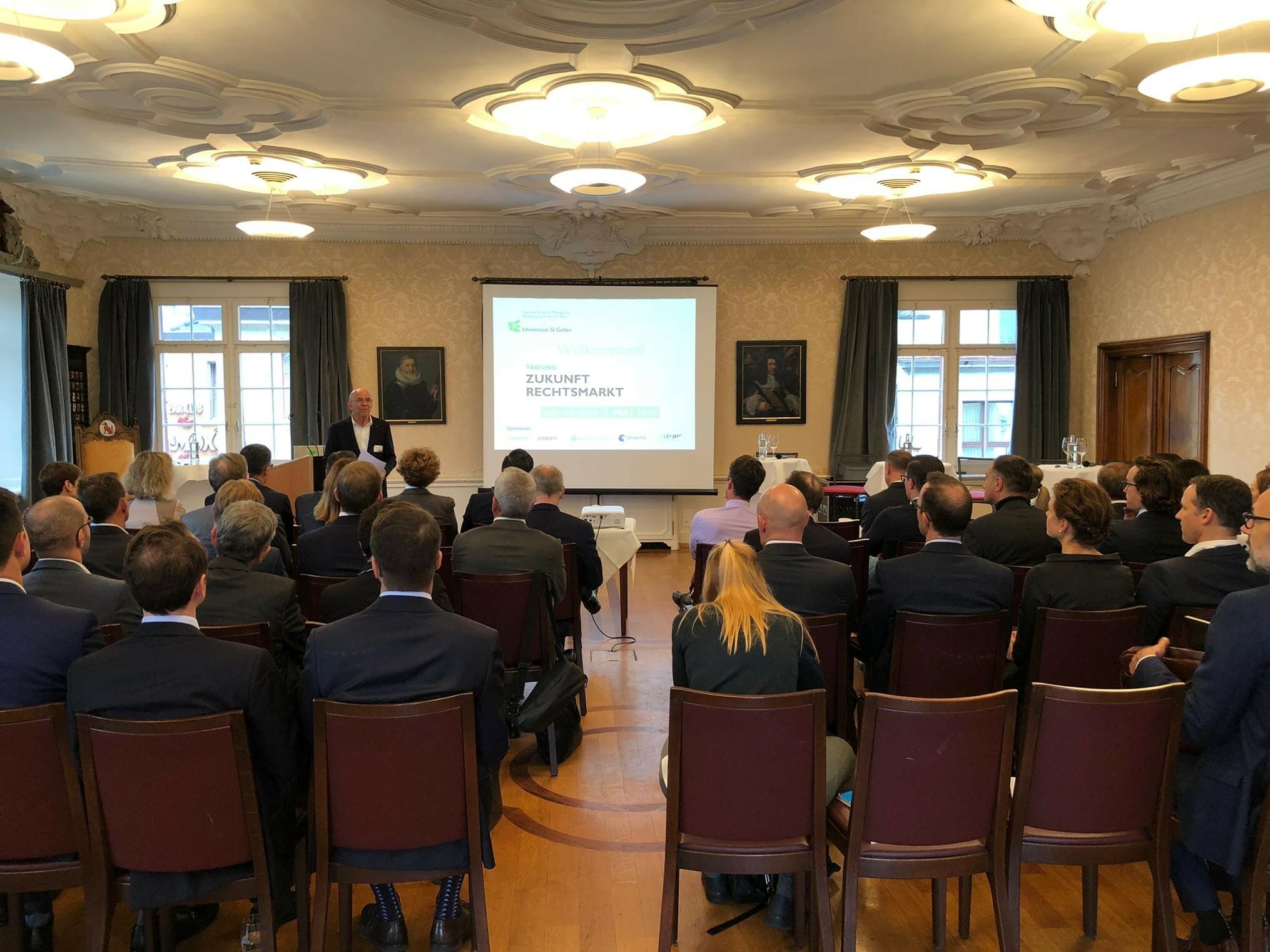“Where are we today in the discussion of lawyers’ fees?” It was with this question that I opened the conference about “The future of the legal market”. Customers are dissatisfied with the remuneration of their legal service providers, and this constitutes a great challenge for law firms and legal departments. Alternative fee arrangements (AFA) is the magic term that the legal industry has to tackle with increasing frequency. Two representatives each of legal departments, law firms and auditing companies shared their pertinent practical experience with the conference participants.
Fair remuneration models
In the subsequent panel discussion with moderator Markus Hartung and all the conference speakers, the various positions were dealt with in more depth and provocative propositions were propounded. It turned out that when it comes to remunerating their service providers, customers increasingly wish for and indeed demand approaches that are more creative than the conventional hourly rate model. These days, customers change providers more quickly if their requirements are not addressed judiciously. Law firms and the represented legal divisions of the Big Four are already testing such models, provided that this can be expressed in financial terms. The audience also learnt that ultimately, not all the remuneration models paid off but rather had to be regarded as an investment in customer satisfaction and thus did not represent a failure. An exciting experiment was the approach whereby in the end a customer was given the opportunity to decide on the amount of the fee to be paid to his lawyer on the basis of what the service provided was worth to him. It was conspicuous that the discussion about remuneration models resulted in much less confrontation among the various representatives. Instead, there was evidence of a serious will to adapt their own remuneration system if it was done fairly towards everybody.
Creativity is required
To conclude, Prof. Dr. Leo Staub from the University of St.Gallen spurred legal service providers on to show courage and creativity when it comes to pricing models. He further recommended that they should dare to make up-front investments, not be shy of business advice that would add value, and report neatly and regularly about case and expenses development. In addition, legal departments should conduct a fair assessment of the services provided by law firms, to help law firms understand the value of a legal intervention for the customer’s benefit, and to provide a clear-cut definition of the extent of their services while considering “design-to-cost“ rather than “cost-to-design“ as a pricing method.
In the future, however, all the providers are equally likely to tackle the following: to welcome technology as an opportunity, to grant each other a learning curve with alternative pricing models and to aim for open cooperation with regard to remuneration. When all is said and done, it is also important to start a constructive dialogue, which is best done through regular debriefings at the end of mandates.
The future development of the pricing process among market participants will remain exciting. The conference showed that there are good intentions and the courage to run risks, that constructive discussions are aimed at and already conducted. The question about a suitable remuneration model has not lost its topicality and its potentially explosive nature, and it is bound to emerge on the agenda of law firms and customers at regular intervals in the future, too.
At this juncture, we would like to extend our warm thanks to all the speakers: Dr. Hildegard Bison, BP Europe SE; Veronica Lierau, Gurit Holding AG; Wojciech Wolk, Allen & Overy LLP; Dr. Clemens Jaufer, ScherbaumSeebacher; Jürg Birri, Deloitte Legal; Jan Schulz, EY Law; Markus Hartung, Chevalier and Bucerius Center on the Legal Profession.
Further, we would like to thank all our sponsors (in alphabetical order): Axiom Global, Inventus Solutions, Phoenix Business Solutions, STP Informationstechnologie, Wolters Kluwer Deutschland.
The conference will take place again in 2020. We would be pleased to be able to discuss further topical issues with you. Please save the date now: 7 May 2020.
About the author(s)

Prof. Dr. Bruno Mascello Director, Academic Director Law & Management
Newsletter
Get the latest articles directly to your inbox.
Share article
More articles
The Future of Work and the Central Role of Diversity & Inclusion
Leadership in Transition: Five Trends of Modern Leadership
The future of work – also relevant for the legal market?
Why inclusive leadership matters for every generation
Do young lawyers need leadership, too? Classification according to generations – slightly arbitrary, but useful

